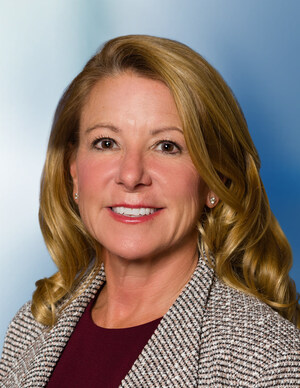BMO Retirement Institute Report: Young Americans Want to Retire Early, but Many Are Not Saving
- Thirty-five percent of young adults expect to retire before the age of 60
- However, almost one-quarter haven't started saving for retirement
- Reshaping attitudes and role-modeling are key to getting young people on track for a bright financial future
CHICAGO, Aug. 1, 2012 /PRNewswire/ -- Young Americans are hoping for an early retirement. However, many have not taken the important first steps of knowing how much money they will need and starting to save, according to a report issued today by the BMO Retirement Institute, Broadening the Approach to Preparing for Retirement.
The report found that:
- The vast majority (84 percent) of young adults between the ages of 18 and 34 find retirement planning relevant and 45 percent are currently saving in an IRA or Roth IRA
- However, almost one-quarter (24 percent) have not saved at all for retirement - despite the fact that 35 percent expect to retire before the age of 60
- Further, only 21 percent have spent some time considering how much they will need to save for retirement
"There is an obvious dichotomy between what young people think about retirement and what they're actually doing to prepare for it," said Tina Di Vito, Head of the BMO Retirement Institute. "While it's encouraging that young adults appreciate the importance of retirement planning, there's clearly a disconnect between the concept and then putting the tangible pieces in place, such as determining how much money you'll need and starting to save. This is especially concerning given that so many expect to retire before the age of 60."
The report also outlined how important attitudes and role models are in helping young people become more proactive in preparing for retirement.
Behaviors and Attitudes Fall Short
The report found that behaviors and attitudes are strong predictors of financial preparedness for retirement. Educating young adults through practical hands-on general money-management experiences, such as budgeting, may help instill good financial habits and encourage them to seek information about saving for retirement.
The report revealed that the level of involvement in saving for retirement is relatively low in most young people. They are not spending enough time gathering information on retirement planning, attending seminars, consulting others on retirement planning, or thinking about how much they should be saving in order to secure their financial future.
"Having a general appreciation of how much money you'll need in retirement involves the important first step of visualizing what you want your retirement to look like," said Di Vito. "Only then can you develop an effective savings plan. This process takes time, research and self-reflection, and the attitude you have entering into it will largely determine your success."
Role Models are Key
Role models – such as parents and other influential adults – are critical to helping young people think differently about their financial future. The report found that many young people turn to family and friends to discuss retirement planning and then seek out information on their own. Consulting others appears to be the most effective, with 38 percent taking action as a result of these conversations. Meanwhile, retirement planning seminars appear to be the least effective at nudging young adults into action. Even with more than one-third (34 percent) attending these seminars, only 28 percent took action.
"This group seeks self-guided information, wants to be in control and prefers personalized one-on-one interaction over one-size-fits-all educational events," said Di Vito. "Parents and other influential adults have to foster an environment that will encourage young people to think ahead. Increasing their financial preparedness for retirement will guide them towards positive action despite the challenging and complex financial realities facing them today."
Di Vito offers the following advice for parents to encourage young people to think strategically about their financial future:
Talk it Up: Provide young adults with written material or other retirement planning considerations and encourage them to attend seminars and webinars on the topic. Discuss saving in a Roth IRA to have a future tax-free asset and the benefits of an employer sponsored 401(k) account. Teach them the "pay-yourself-first" strategy so they establish sound financial management habits early in life. Then introduce them to financial professionals who can provide personalized one-on-one guidance.
Avoid "Freebies": If adult children are working but living at home, discuss their financial contribution towards general household expenses and perhaps charge them rent. If asking for rent makes you feel guilty, consider investing the "rent" money in a separate account and then surprise them with a monetary gift at a later date to use for a down-payment on a house or for their wedding.
Speak their Language: Instead of using words like "retirement planning," make the future more relevant with phrases like "building wealth for tomorrow." These interactions will increasingly need to take place using their preferred channels of communication such as smartphones and social networking websites.
To view a copy of the full report, please visit: www.bmoharris.com/financialadvisors/resources/bmo-retirement-institute
*Sources for all data and findings referenced in this release can be found in the report at www.harrisbank.com/retirementinstitute
About BMO Financial Group
Established in 1817 as Bank of Montreal, BMO Financial Group is a highly-diversified North American financial services organization. With total assets of $525 billion CAD as at April 30, 2012, and more than 46,000 employees, BMO Financial Group provides a broad range of retail banking, wealth management and investment banking products and solutions.
SOURCE BMO Financial Group
WANT YOUR COMPANY'S NEWS FEATURED ON PRNEWSWIRE.COM?
Newsrooms &
Influencers
Digital Media
Outlets
Journalists
Opted In





Share this article